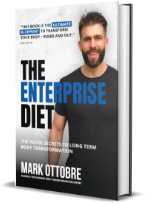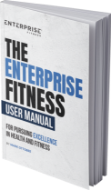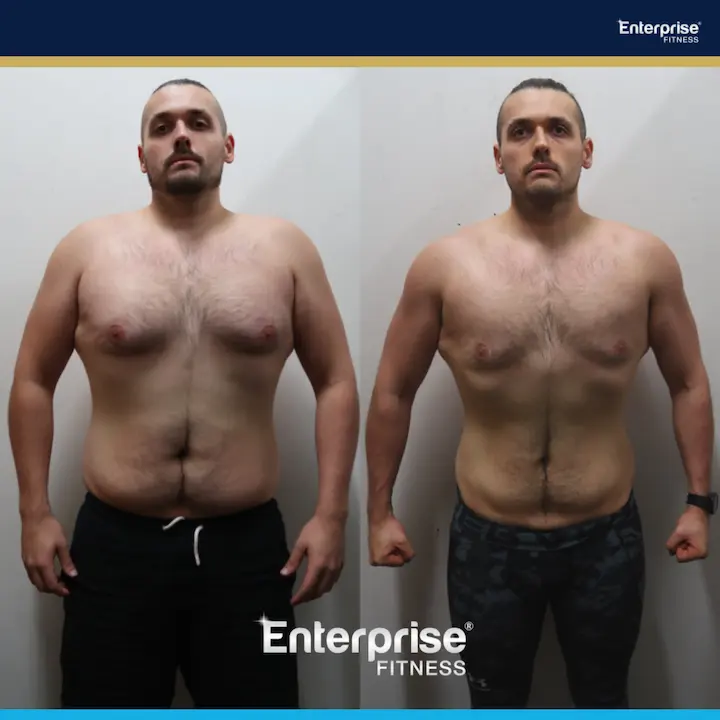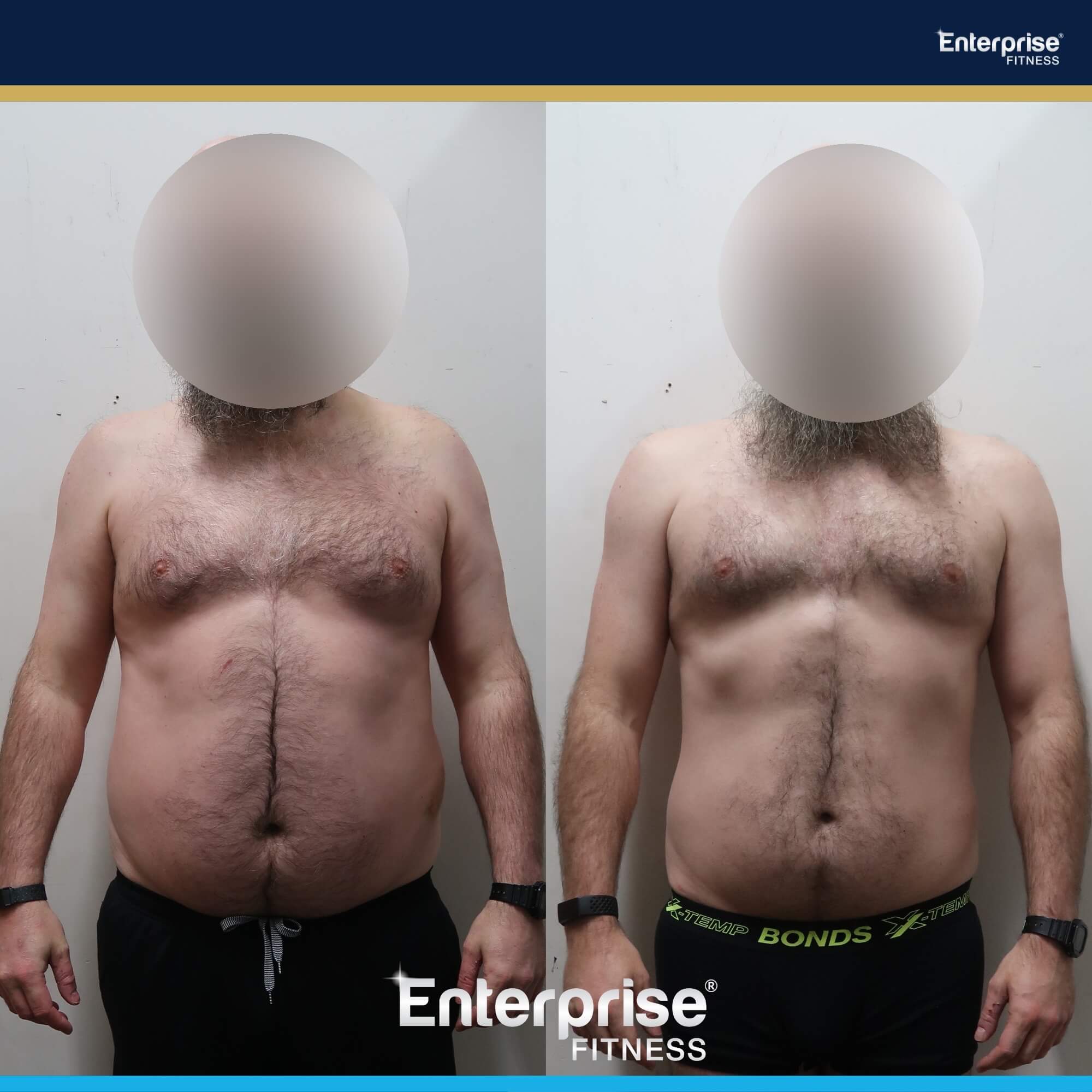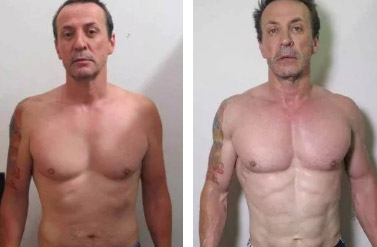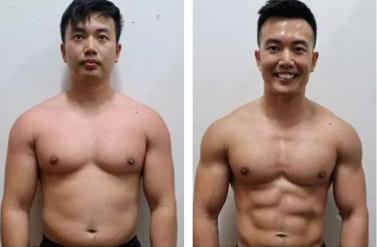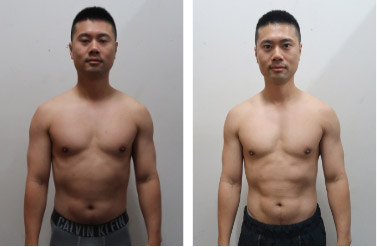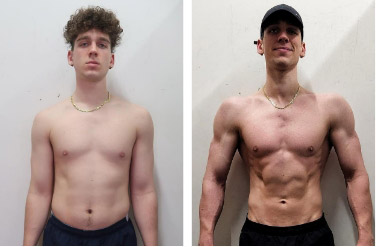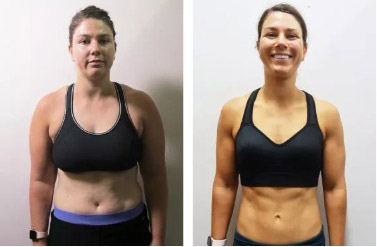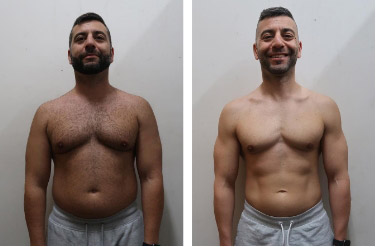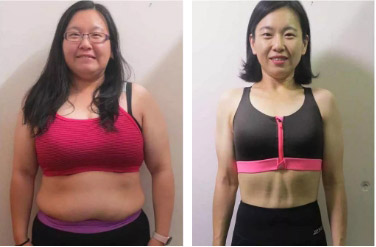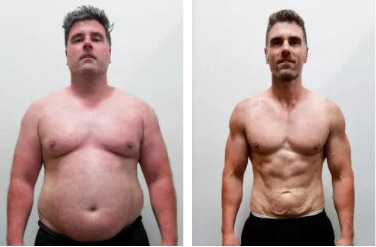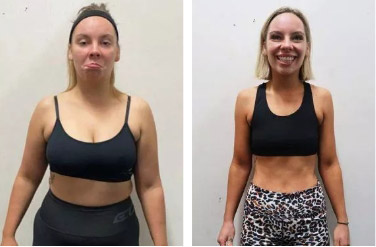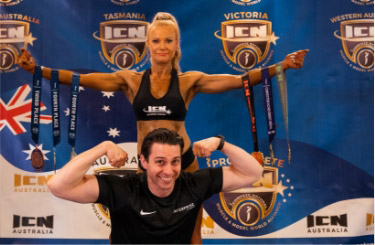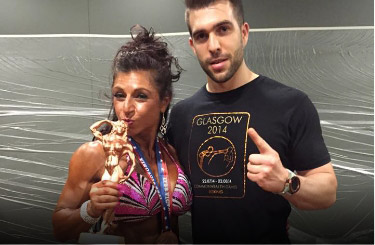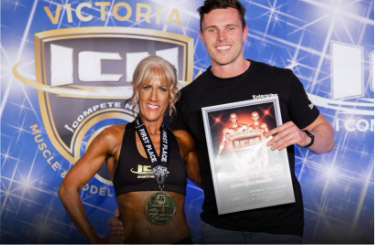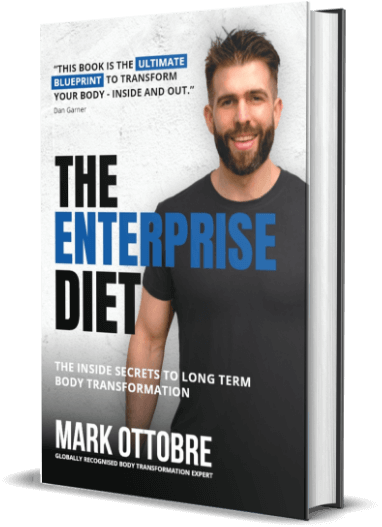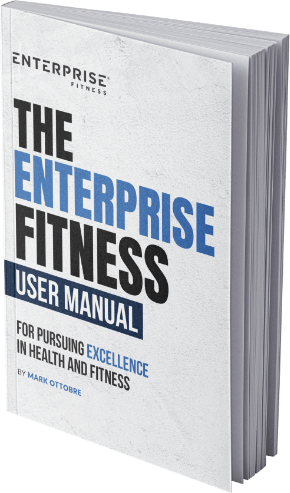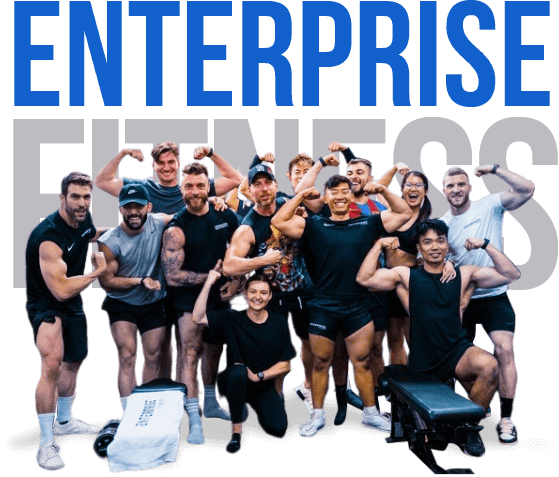In this episode of the Wolf’s Den, Mark Ottobre sits down with Ben Cant, an intellectual and physical power house. They get into all kinds of deep deep discussions around physiology, blood markers, using lab testing for better health and body composition and much, much more.
Listen on iTunes or Soundcloud:
Transcript From Using Lab Tests for Better Body Composition | Ben Cant on the Wolf’s Den with Mark Ottobre Video
(This transcription may contain errors)
Welcome to the show that educates and entertains, welcome to the Wolf’s Den, my name is Mark Ottobre. Today’s guest is both an intellectual and a physical powerhouse with his best deadlift being over 300 kilos with 300 kilos for four reps and he’s understanding of biochemistry second to none please welcome to the Wolf’s Den, Ben Cant. Welcome Ben. How’s training been?
Training has been not very existence.
No?
No, not for the last 20 months little bit of a break off but getting back into it.
Now you’ve had a few competitors recently in a few different disciplines in a few different sports when a few things.
Yeah. Few wins but like just competing more so, few para lifting strongman bodybuilding physique.
Now your day, your time where do you spend most of your time and what are you doing?
Definitely not on competitors so much anymore. Still a niche that I do like to coach, but most I probably general health work in the education department for result based training, still doing that. That’s about it.
Let’s get into your genesis story ’cause I mean, you’ve got a lot of great info, you’re very intellectual way you approach things. And obviously your understanding of biochemistry and landmark is very, very impressive. Where did that begin for you?
At school, university biochemistry, didn’t spend much time in labs though. I got into fitness soon after finishing that degree. And that just kind of led me into exploring nutrition, nutritional biochemistry and sort of going from there I worked in health food shops for a while, supplement stores, I should say. And then after that got more so into the fitness industry, and just evolved from there.
When you say it was at school, so what would you go to school specifically to study?
Biochemistry.
Biochemistry?
Yeah, I started doing a double in psychology and biochemistry and then sillily dropped the psychology in the last year, whereas anyone who’s a coach these days, probably realizes that we do a lot of psych. Was just focused on chemistry, biochemistry in the end.
You did your biochemistry, how many years was that?
It was the three degree that I turned into a four year token industry based learning. Adam archery working in the dental industry finished it before.
When you finish that, what was your like, what we planning and doing? Were you planning on becoming a coach or?
No, basically was just having a bit of time off before going into the industry proper. And in that time, I just started training, and I started researching, and then that sort of led me to looking at the nutrition behind everything, and I was a dweeb, but I started training and it just sort of evolved from there.
In terms of that, how do you integrate the lab side of things now? ‘Cause I mean, we’ll actually before we even get into that, the evolution where did you start in the industry?
I started at GNC support stores mentors, you know, when they were here in Australia, that would have been back in 2005 maybe. Just working there do some retail lot of other qualified staff there at the time ’cause I worked in some stores that had some really good stuff, not just retail stuff, so natural plants and dietitians and Chinese medicine and things like that. That was really cool for me, like having come out of a straight science in a normal university it didn’t really have any experience with those other modalities, but really opened my eyes up into some of the alternative health, alternative medicine that was out there.
You finished your degree in the biochem, what was the plan? What did you think you’d be doing?
Oh, look, a lot of my peers went into working in different laboratories or going to things like pharmaceuticals, rapping and things like that. I didn’t really have an area that I was a really wanted to go into if it was going to be anything it might have been something along the environmental sciences that’s what interested me more so at the time, but after sort of getting into the gym and I sort of got the bug and once I sort of started training got into fitness, that was it. It was game over.
You got into fitness, loved the fitness, and then that’s what led you into coaching?
Yeah. I kind of held off coaching for a long time, just because I ended up franchising, a couple of supplement stores, and I was working as an employee previously at, and so I didn’t really have the time to do coaching as well, but it kind of just led sort of organically into doing that with some customers from the store anyway, and then from there when I got out of that’s part of the industry, it just made sense, to me to just go a little bit deeper and work one on one and that kind of thing.
When you got into coaching from the forefront, were you looking at labs?
No, I’ve always been one to have a network. I’ve always had a great easy reach team of people like natural paths and that kind of thing. I probably worked more so with them. To see what they would take from it, and then sort of network with some general practitioners or doctors as well. And from there, I sort of up scaled myself in a lot of that, too. And still think maintaining that network is really important but initially, like, I wasn’t looking at labs or anything, no.
No, it was mainly just programming, training them. Where was the gap for you? Where did you start going into? ‘Cause, I mean, what you would call you do now is more functional medicine and we got words out of your mouth, but would you say that’s more.
I’d say that just because like, as once you sort of belong to a tribe like that, you’re sort of like, pigeon holed into that kind of thing. And my network is not as many GPs and endocrinologists and things like that as I do with metropathy and those kind of modalities these days. And I think that’s important. Like one of the things that I try to, really when I’m coaching or mentoring other coaches we get talking about practicing within your scope, like, one of the things that I would say is that there’s power in numbers. And if you actually know how to network rather than fighting the system, you can try and find those best individuals in the system and then work together.
What brought you to then applying the skills of reading labs? Like how did you get to that point?
Oh, look, I think it was just a case of I’ve always been someone who’s been into research, probably, sorry, I’m tapping the table.[tap the table 00:06:33]
Jaden will bash you.
Yeah. Look like it’s a… what was a question?
You said you started with your background Biochem then you went to the supplement stores and you went into coaching purely as a coach and then just understand the story behind you. You had that skill set, when did you start to realize well, actually, I can provide my clients with a better result looking at labs?
Cool, I mean, one of the things that when I started doing a lot more research in terms of nutrition, was the fact that a lot of the fitness meal plans that I was saying, when I was taking a history of clients, they were like an A plus B plus C, like protein plus carb plus fat gain, x vegetables or whatever. And I was just seeing really big gaps in terms of the hitting, minimum nutrition requirements, okay, based on these healthy meal plans and healthy setups. And that sort of led me to looking at a lot of the nutritional biochemistry and understanding and just teaching about these vitamins and minerals as co factors and how they make the biochemistry work.
And from there obviously, you can get some insights into someone’s current status looking at these lab markers and seeing which lab markers actually worthy. Some of them provide you with useful information and others you sort of have to, you know, read between the lines or you can only make associations between it but at least that way, when you’re, you know, having discussions with a client or design meal plans, you can take into that into account as well.
Looking at that, when you started looking at all these diets, and you thought, well, there’s a lot of things missing, what was missing?
Look, I mean, I suppose.
Let me rephrase the question. There’s people watching this on YouTube. And they’re on the standard kind of diet of, “I’m on my protein and my fats on my carbs.” And they think they’re doing a good job, where do they begin to navigate because it’s kind of a case of what they don’t know, they don’t know.
Exactly. I think, we’re at a fortunate time period right now where you can, with technology, you can basically evaluate your current nutrition pretty easily. You can plug it into certain apps, and you can ensure that you’re getting your macronutrients and you can start to see how you’re eating your micronutrients as well. Depending on where you live in the world, and what governing body does the recommended daily intake or suggested intakes for vitamins you can start to see, how well you’re hitting them. What I see is, we don’t hit a lot of our mineral intake anymore, you know what I mean.
Things like magnesium and potassium, they’ll often be, and calcium well and truly under when I take a client history and other vitamins, it’s like certain B vitamins whilst they may be hitting the suggested recommended daily intake or adequate intake suggested by those governing bodies, perhaps still, when you go and do some lab work, you’re actually seeing that there’s levels aren’t high enough still, which brings into play the whole thought process of like, how much I hit like pod training individual needs and he’s those [idois aois 00:09:30] is actually adequate for them in a meal plan or do they need more?
Other trends that you’ve seen ’cause I mean, you can correct me if I’m wrong in a stage but you’ve consulted with pretty high level bodybuilders, figure competitors bikini competitors, strong man and power lifters and also, the personal trainer who’s training fairly hard. I don’t want to focus on this demographic to begin with, but obviously, it’s a comparison of this demographic to say you popped in a demographic, but in this demographic, are there differences like can you then further go right with power lifters, you actually see this deficiency and this is the labs what you normally say with bodybuilders, you see this with figure competitors, you see this, what are some things that you’ve noted in terms of lab testing with the different demographics?
Yeah, sure. And it’s probably worth keeping in mind that, what I see is a nation that regard so it wouldn’t apply to everyone. But some of the common things that I’ll see like one of the tests I run a lot with athletes is the organic acids test, provide you-
Just for the podcast, can you explain what the organic acid test is?
Yep. It’s like a urine test basically, you’re capturing different metabolites released from the body. Those compounds when you look at them can be sort of a direct or indirect marker that you can look at different nutrient status of there’s ones of bacterial or candida origin in there as well.
How does it differ from before you get into the real good stuff, how does that differ from a blood test?
Obviously, it’s from urine, so they gathered a little bit differently but you basically looking at different markets, okay, so you can use them as an adjunct to some basic blood tests, I think basic blood tests too are very valuable in the right hands, especially when you start looking at certain trends over time with a client. But as an adjunct, the organic acids test is quite good. So you can start looking at, specific markers for things like vitamin B6 which is one that I’ll see, those particular markers in the organic acids test, such as[inaudible 00:11:28] the elevated would suggest that we might have an issue with sufficient vitamin B6.
B6 vitamin plays a really important role in the synthesis of our neuro transmitters and a whole bunch of other processes in the body as well. In terms of certain patterns that you’ll see with a lot of these competitors, generally speaking, you got to remember that you’re only really going to run that test on someone who you find it’s warranted for. They’re probably you know, complaining of certain things whether it’s fatigue.
What does that mean, they’re complaining of certain things?
Yeah, the average, so again, just to give a context to the type of person who might run this test on, maybe it’s like extreme fatigue, maybe it’s issues with sleep, maybe it’s things that they probably sought out medical advice for done their own research and just not being able to truly resolve it but not be diagnosed with anything that’s clinically sufficient for a doctor to take action on. And so they’re just in this subclinical roam where it’s just like, I don’t feel well, and I haven’t felt well since x, y, z. A lot of them it’s competing and some hard dieting and training, and it’s basically just lead them to a point where they just don’t feel good anymore.
Again, I don’t want to oversimplify, but I kind of do because I like to poke the bear a little bit. And if you were to pick one test, you do the organic acid test over the bloods?
No.
No?
No. Again so like, I think just doing some basic blood work for a lot of people, just generally speaking like every six months or 12 months is not a bad idea anyway, for someone who’s a hard training individual, you’d be looking at that and say if anything was to come up then maybe every three to six months you’re going to be looking at those blood, but there’s still a lot of value to be taken away from getting the basic chemistry done. I don’t run the organic acids test with everyone who walks into my office, that’s for sure. Not at all. It’s really bad if it’s warranted, if maybe you see something in the bloods and it’s worth investigating a little bit further.
I’ll just take a moment to have a quick disclaimer on this, by the way everything we cover in this interview and podcast or YouTube show whatever you want to call it is for your information purposes only and for instance learning only. So, do not take this advice is what you should do. Always go see a qualified practitioner now that, that’s out the way. Done my due diligence. Again, so I want to get lean, I want to get jacked on, I want to get strong, I want to get as big as I possibly can and as strong as I possibly can. What blood markers are you looking at or what are some commonalities, let’s begin and are the differences, that’s a lot of question but are the differences between bodybuilders and power lifters, first of all, in terms of what you see when you run labs?
No.
No.
Not necessarily, ’cause again, I think the individual context is more important than trying to treat power lifters and bodybuilders as completely different. I would have, again, just like to lump all power lifters in one group, which you shouldn’t do, but like a lot of them will come to me and eating is not as standardized or rigorously looked at as with the bodybuilders, because a lot of them don’t have the… you have to go through what a bodybuilder does to get on stage. Perhaps the food quality isn’t there but again, I’ve got a great pal called the [Lauren 00:14:44] in Sydney and her food is amazing. She came to me eating as good as you could ask him to any physique athlete, that’s for sure. It’s not that I would run different blogs based on them being categorically a bodybuilder or a power lifter.
But are there trends that you see compared to normal people who are just kind of average training or not training compared to like, I suppose really the question that comes from what are the demands that you see from biochemical point of view that training does that really, if we’re wanting to get as big, lean, jacked on, as you know, strong as possible, what are the considerations that we really need to be making? Because most of them, let’s face it, most people are going to sit down and watch this episode, commit to an hour to go through this content and their training hard and I want to know, how can I want up my training?
Yeah, some of the main things that I’ve seen come up, would be issues with thyroid. Whether or not the… one of the challenges though I suppose going to a family doctor who perhaps may not want to look at a full thyroid panel. That is just beyond the thyroid stimulating hormone. It’s actually look at the free T3 and free T4 perhaps go a little bit beyond that and look at some auto antibodies.
Is that male and female you find thyroid, always comes up or is most specifically the female?
Again, like you dealing with the type of person that’s likely to sit in my office a lot of the times it will be with challenges with fatigue challenges, with weight loss in regard to the fact that a lot of the other aspects of the nutrition and training are pretty much on point these people have gotten in shape before and I’m wondering why perhaps it’s a little bit harder this time around. “Why don’t I feel as well?” And a lot of the times it’s probably due to like all this hard training these extra stressors and little downtime or recovery period throughout these, contest preparations or dieting phases and stuff like that. And then it’s, a case of looking a little bit deeper into some of this blood chemistry.
Thyroid, I think it’s a really important one many miles that step through office. They’ve been consuming large amounts of protein that perhaps are using various supplements and medications and things like that. Putting a burden on their body as well and perhaps we see some inflammation in there. It’s things like this see reactive protein and their protein levels and we might see elevations through there and have a bit of a look at what they’re doing and then start talking about what kind of changes they might want to take on the nutrition front to basically look at getting some of these levels backing in order.
If I’ll say let’s work with you and do a whole protocol, generally speaking, reasonable level, I’m sleeping with say, okay, not optimal. Let’s say I’m eating fairly well but not optimal. Let’s say my training is fairly good but as you said in this case, I’m quite tired and fatigued where do you begin? I suppose sorry, let me direct the question to be better ’cause there are a lot of times in the industry people were talking about deloading and reducing volume and making sure the training and to a lot of guys who I suppose a bit more hardcore and girls who really want to try and push it, it’s like, “What do you mean I can’t train as much and what do you mean have a cut down the volume?” Are you in that camp? Is that every place or is that overstated?
No, absolutely. Back in 2014, like I was really doing a little bit more on social media in regards to gut. And thus I was getting a lot of clients, knocking on the door looking into gut. And what I discovered over sort of 18 months of working through things and testing and conversations was, ultimately the clients that I struggled with the most were the ones that sacrifice the most sleep. Then I kind of changed my tune, and I realized that, maybe sort of communicating that sleep was really like that important.
Sorry, can you quantify that? As in, what do you mean, they were sacrificing sleep? ‘Cause there’s a lot of people who are like, “Oh, well, I sleep good, but not great.” What does sacrificing sleep mean?
I think like when I have a discussion with client on sleep, one of the things I’ll do these days is usually direct them into some of Matthew Walker’s work. He’s on the rounds at the moment doing so many podcasts and he’s a terrific orator. Like the way he explains things and breaks things down simply for like the general population is absolutely amazing and directing acquire to some of the podcast work that he’s done is one of the first steps I do, types of it I’m just leveraging off someone who says it really, really well. But some of the main concepts that I’ll talk about with clients is like, “Look, we really want to be getting seven and a half to eight hours sleep per night anything less than that. And our ability to recover and improve the systems of the body is just incapacitated,” It’s only going to work so well.
Whether that is body composition related so whenever I’m doing a seminar I’m talking to a fat loss seminar or a nutrition seminar, I can’t help myself always interject sleep into the picture because we’re an under slept nation, and it’s just getting worse as a badge of honor to not get enough sleep. I simplify the statistics a little bit, I’ll say that but I will generally say, “Look, of a kilo of weight lost between if you sleep eight hours a night or you just like five or six hours a night, if you sleep eight hours a night you might lose 80% fat so 800 grams of fat 20% lean muscle.” Those figures are flipped, if you’re an under sleeper, so you’re likely to lose about 80% of lean muscle mass to 20% fat.
And that’s generally enough to shock people, into like, “Well, okay, ’cause I try so hard with the nutrition front, with the training front, but here I am just, you know, sleeping five to six hours a night.” And this is why it feels like drawing blood out of a star. That’s usually enough to get some skin in the game from people to actually understand the sleep. And so the next steps as a coach I do a little work with is just changing those behaviors. I guess the hardest thing is that seeing the value of sleep over that, the short term, you don’t get it over the short term, you get it over the long term. It’s just about finding the right strategies that can work so that you get that payoff, and that’s one of the reasons that I talk about tracking sleep.
I think that technology can be good thing used in the right way. And sometimes we don’t know, what we don’t know. So someone can say, “No, I sleep fine,” but then they realized that they’ve been sleeping five and a half hours a night, or there’s interruptions or perhaps they’re not getting deep sleep or wherever they’re cutting it out. Once they start seeing that, then they can start making the changes that in the right direction to fix it.
Do you have any go to sleep pack supplements that you’d like to recommend for clients?
Yes. Generally don’t start off with too many supplements like I have done… I started on supplement stores.
You are a fan.
I am a fan and I suppose these days I really try to supplement as often as possible. I just like to say, “Hey, let’s use supplements if we need,” but like, and I’m sure you’ve had this situation as well. It’s like sometimes you’ll have an initial consultation with someone they come in and they got two shopping bags full of supplements they get, “Here’s what I take, I don’t know what it is.” And then you’re looking through stuff and half of its expired and they get, “My previous coach told me to take that and then the pharmacist told me to take this and I got this off the internet because my best friend said, she used it.”
And they don’t know what they’re taking or why anymore. I’m someone who likes to peel back on those things, first and foremost. And the other thing is, especially when it comes to something like sleep, it’s really the behaviors that are usually going to make the biggest difference. Avoiding artificial light after dark, avoiding those kind of activities, which get us really worked up into that state of arousal where our minds ticking over and we can’t get to sleep. I am known to use the blue blocking visors, which will basically help you relax and fall asleep and create your melatonin so that you can get all the benefits of sleep throughout the night. But basic stuff first is behaviors.
Any advice for parents who have their kids constantly waking them up?
Now, I get asked this, not really. They’ll get through that phase of life.
Getting back into the tests, you’ve done a fair bit of work with genetic testing. Where does that piece fall for you?
Yeah, I mean, again, I went through a phase of running a lot of genetic tests, especially now that they’re so cheap, I think when I was first looking into it, when they first come out, it was still around about the thousand dollar mark and now they’re like,$99 or two $400 sometimes when they go on special. And I think they can provide some valuable information, but alone here, the problem is this, is that people get a genetic test done, and then they make decisions based off the genetic test. And I’m like, “Well, just because you get a report and it says, you have a problem with your MTHFR, you should go and take this form of full light as a supplement at this dose.” That’s it kind of a dangerous territory for me if the general population is going to get a freely available genetic test, not see someone who can really help them, interpret it, and then go and make decisions on what type of supplements/nutrition thing that they’re going to do from there.
I think the most valuable way you can use a genetic test is to really look at your history and nutrient intake and your general health status and then potentially integrate that up with working with someone who might say, “Hey, let’s go and check your B12 levels or your full light levels or whatever we, so that we may have this vulnerability based on these polymorphism or these are individual alterations in our genes.”
In other words, make sure I’ve got it right, let’s say I have a gene where I’m at pulmethylatum, but I might actually through diet through lifestyle through nutrition. I’m on I have no problems in methylation but then if I read the genetic test, it says, “Well, I should be pulmethylatum,” but in reality, I’m actually not yet and vice versa.
Yeah. And that distinction is so hard for a normal person to grasp. Because again, it becomes this emotional time with like, “Oh, that’s my genetics,” again. You can have this conversation with a client and go, “Hey, this is what we see here but you’re not symptomatic of any of these issues.” And during the conversation, it will be like, “Okay.” But then you may revisit that conversation with that person four weeks later, and they’re still hooked on the fact that perhaps they’re doomed or they see it as this fatalistic vulnerability that they have. I can remember cases of getting these 23andme reports back with clients where you’d say all these heterozygous or homozygous clinically relevant, polymorphism.
These perhaps inability for these enzymes or these proteins to do things well for them in comparison to the norm. But then you look at their blood work, you look at the results they’re getting, you look at the why they feel and they’re perfect. And so I probably done let genetic testing just based on my experience that it’s hard to keep a clients at local bond set around the testing on point. Does that make sense?
Yeah, yeah. In other words, it’s the environment that loads, what is it genetics load the gun, the environment pulls the trigger?
Yeah.
And that kind of that’s always the quote, I suppose that gets thrown around anytime you talk about anything genetically but essentially, it is that like you can have all the markers to, let’s say, cancer and never get cancer and then you can have, basically no markers and still get cancer. It’s behave with your life and what’s behind it more so. And you are using 23andme that’s the labs you don’t use anyone else in terms of-
Yes, a 23andme will provide you with raw data and then you’ve got a number of reporting tools, okay, that you can make sense of it ’cause the raw data is a huge is at fault. The average person isn’t going to be able to use that and run that through themselves and get anything that makes sense to them. But there’s a host of reporting tools around about $50 Australian maybe up to about $100 Australian that you can run that through and each of them will do their own set of, you the genes that are look up and give you that information from there. I’m happy I’ve done mine, like, I got some insights into things that I wanted to keep an eye on with myself.
There’s certain genes that I’ve got like a PMT gene, which means that I might have issues with fosterColin, okay, so that is something I look at in my diet, from a nutrient perspective in the way that I choose what I eat. And those are the kinds of things that are beneficial from getting your genetic test done. Is you can look at these different nutrients and go, “Well, okay. I do want to focus on that. I like that anyway, if we wanted to look into it that for some of those nutrients, maybe there’s a test that could be done.” Again, this is another reason why I do like the organic acids test. There are a few markers in there, That makes sense in regards to some of that information as well.
Not sure if you saw it, but those few articles that were certainly released around genetic testing and the efficacy of genetic testing and people then sending some results and then two weeks later the same day, they send another pair of results and they got two different sets. What’s your take on that?
Yeah, look, that’s, in essence, you’re at the whim of this kind of stuff when it comes to these companies because as a coach, clinician practitioner, whoever you are, you really lifted the devices like you said, the efficacy of the testing that’s being done with different laboratories. And like the fact that perhaps the sending of samples and getting two different results does a massive problem with the validity of that data.
When would you like let’s say you’re working with me as a client again? When would you go right, “Mark, or client, now’s the time to do a genetic test.” When does that piece fall in for you?
It doesn’t, look, I don’t really do it that much anymore. To be honest with you, I’ve seen enough, run enough tests that I feel like if someone’s got one, great. And if someone wants to learn, that’s probably the other reason I do it more so at this stage is that I have a client or a coach as a client that comes to me and wants to just make sense of a generic report. And as we know, one of the best ways that people learn is just to do it on themselves. And so we’ll run the report and then we’ll just discuss the genes that come up and what type of things may assist with that functioning properly. Whether it’s particular vitamin that we could take into account or, staying away from something and that kind of situation. But as a general rule of thumb from a optimizing performance perspective or health perspective, I have run less and less of them over time. It just because the data you can obtain from different labs, for instance, just find to be a little bit more beneficial.
And are there anytime or any points where you’re using an organic acid test, to see things inside the gut, I suppose where the real question is, a lot of emphasis gets placed it on the stool test, right? Is it exclusive? Like if you got a gut issue, you should get a stool test? Or is there a situation where you would actually use a combination of bloods and organic acids over going straight to the stool test to look at what’s happening inside the gut?
Nope. I think that the… in terms of gut the stool test probably gives you some more direct and specific markers, whereas the organic acids test in which, depending on which lab you use somewhere between 50 and 80 markers you get back from that were 20 to 30% of those may be useful from a gut. A lot of them and not specific. It gives you some insights as to whether or not that there may be an issue with some dysbiosis, or you got the extra dialectic coming up or some a rabbit hole which is like a yeast marker. But the stool test from a gut analysis perspective is going to give you more specificity.
The reason you may choose to do an organic acids test is perhaps said individual has a little bit of a gut issue that they think but you don’t really know yet but perhaps they also suffering from this fatigue and other symptoms in which you go, “You know what we want to look into, you know your functional levels of B12 and full light and B6 and these other nutrient co factor vitamins and so you can make the best use of the one test.
This is where you go back to the organic acids?
If it was more than just gut, if you only wanted to look into gut and you wanted more specific data, you would choose a stool test over the organic acids test, in my opinion.
Is gut something, it’s over emphasized?
I think it’s worth going through just an interesting period of time in regards to the research. Again, like in what, five years ago, now, I was doing mainly gut until I realized that this was getting better and better. And the ones that I wasn’t getting great results with, those are the ones that I couldn’t address the stress and sleep issues. And then I sort of changed my focus just in terms of general communication with my audience and my clients in ruthless on getting good sleep, because I was like, “Look, once we resolve the sleep, a lot of these other things fall into place a lot easier.” In terms of, one of the things when I did work in the supplement stores is people just come in and buy a probiotic. Just thought off the shelf, general probiotic, and it will be based on them being advertised on TV, or perhaps their friend got it and got some resolution to some gut symptoms.
And so they come in and go, don’t ask any questions. Just go, “Yep, I’ll take that probiotic.” And come back like 60 days later and go, “That did nothing for me.” And it’s like, well, because we don’t know if that was going to suit like your issues whatsoever. There’s many aspects that you could look at, rather than just looking at a probiotic. And so there’s some in some interesting data that came out late last year, just in terms of like, the efficacy of using like a probiotic to repopulate the gut bacteria post antibiotics. And so that’s made a lot of practitioners in that know, top of the functional medicine realm who had been doing the post medication, probiotic protocol regime, kind of step back a bit and go “Oh, wow, okay. We didn’t not expect to see that we had a worse result of establishing that gut biome back after that.”
What did the research show?
It just showed that, so they had two groups and they gave one a probiotic, and one, just the placebo. And what it showed was the restoring the gut biome actually took longer for those that took a probiotic. And it’s just an initial data like it needs to be someone else needs to repeat it, and we need to look what’s going on. But it was enough for some well known clinicians to kind of go, “Whoa, okay, that’s really interesting, because we’ve just been doing that based on the assumption.Because it makes sense, right? You kill the bacteria. Let’s give them back.” And that’s not to say that probiotics are useless at all. Like there’s a lot of data out there in different some of its human data, some of its like rat studies and things like that, but that probiotics as a transient therapy, so whilst they’re actually being used, can modulate the immune system have effect on our neuro transmitters in our mood and that kind of thing. But in terms of like, do they reestablish the gut biome after that period of therapy is finished. It doesn’t look at this stage like it really does.
What would you like from the snippet of data that’s being presented in that research, what do you put that down to? In terms of like, why it’s not happening, why theoretically you think that it’s supposed to happen?
It could come down to, again, it could come down to like any studies that we set up it takes time and, and money. And a lot of them are not the duration that we want to say, not the dosage that we want to say that. Again, this is not to say that probiotics don’t work. I don’t actually think that at all. But when I’m trying to teach or to explain to someone, “Hey, this is the data that we have at this point in time.” And it’s not to take away from people’s experiences either, because a lot of people when they have a probiotic will have some really positive outcomes in terms of the symptoms disappearing and stuff like that. But it really comes down to more research needed.
And I think that a lot of the studies, sort of suggesting that when we take a probiotic in a pill that it’s really just a drop in the ocean, in terms of really trying to fix that gut biome, and perhaps transiently it does, but then after we stopped taking, the bottle finishes, it’s not something that’s necessarily going to stick or hold in terms of that gut balance.
A friend of ours, David O’Brien was going to be on the next episode, Episode 11. He’s spoken about, we’ve spoken about, he’s found that there’s correlations that no one’s necessarily taught him, but through doing stool tests, a lot of stool testing a lot of clients getting the bloods as well. He’s saying correlations between the stool tests and the blood markers. My question is for you, ’cause you’ve done a lot of organic acid tests. What unique correlations have you seen that you haven’t read anywhere, but you’re like, “Well, this is interesting between organic acid tests and blood markers,” if any?
Yeah, sure. Again, another common scenario I see is a client a walk through the door, and the blood work shows that in some sort of inflammation, okay, we might test their highly sensitive c-reactive protein, and it’s the high it’s greater than five, which in the way I view it greater than one is higher, but most larger reference ranges might have it up to five is okay. But maybe that’s high and maybe ferritin is high. Okay, so ferritin is awe kind of simplified is like a global storage of iron. But it’s something in acute inflammation, we will see elevations in ferritin as well. It’s not unusual to see those high, it’s not unusual to see GGT which is in our liver function tests high as well as you can have like a trio of those that might be high.
Now in the organic acids test, you might see issues with there’s a marker for oxidative stress in there. We’re looking at basically bits of DNA damage, the metabolites of the compounds that come out when you capture it in the urine test. And so it’s not unusual to see the markers of oxidative stress and inflammation high one in the organic acids test and one in the bloods. So that’s a common scenario.
Any others that you think come to mind?
I think like, often say when we look at things like serum B12, for instance in a blood test now we know that, that’s a marker which isn’t very sensitive. In other words, you can catch in a B12 deficiency in a serum B12 test. This is like the last place you’re going to catch it. Whereas in an organic acids test, you can catch up with a marker called methylmalonic acid or MMA much quicker than that. It’s always interesting when you see a set of bloods come in and the serum B12 looks okay, and then you catch it on the organic acids test, okay, cool. We might not have caught this for ages, if we didn’t do the organic acids test.
Can just explain that with the serum B on the blood test that can be high but someone can still have low vitamin B?
Yes, it is a difference between you capturing it in the blood, and then it playing its roles in the body. It’s equal like a cellular level like it doing what I’m supposed to do, and the methylmalonic acid that you get on the organic acids test, if that’s elevated, so it has an inverse relationship with B12. And that’s able to be used if you like. It’s not just about what you can capture on the bloods, it’s, well, is it doing what it’s supposed to do? And the fact of the matter is, if you have an elevation in methylmalonic acid, suggesting that functionally speaking your B12 is insufficient than overtime, what you’re probably likely to see is that serum B12 is probably going to get lower and lower and lower, if we keep heading down the same track.
Are you not going to say that for a good long time.
That’s right. It’s basically it’s the third or fourth place that you’ll catch it is in that serum B.
That blood marker is almost like having cash deposit that you can actually access on a daily basis. You need to really wait a couple of months to actually pull from that to use it in anything meaningful in the body?
Yeah. And again like when you look at the research, and you look at different countries have different cut offs for that vitamin B12. Here in Australia, for instance, some of laboratories would basically have anything over like 150, 200 to up to 800 might be the reference range, but places like Japan, they’re cut off for B12 deficiency will be at 500. That’s a pretty big difference. I said, it really depends on, where you are in the world as what you’re going to see as, “Are you okay or not?”
Why is there such a disparity in lab markers around the world?
I don’t know the answer to that. Like this is something that as I was writing up some content for a course, I had to do some digging around and, I was writing out the idios of adequate intakes for a lot of vitamins and minerals and stuff like that. And I remember getting to potassium that we’re talking about before and Australia here, our governing bodies suggests, I think it’s like 2800 milligrams of potassium per day for females and about 3800 milligrams for males. Whereas in both the US and the UK, they put that at 4700 milligrams, that’s a pretty big difference. 4700 compared to 2800 milligrams here for a female for a very, very important mineral in our body.
And so upon reading that, and then that sort of made me dig a bit deeper into what I was doing in terms of meal plans, because, of course, we’re in Australia, a lot of the time I first and foremost, look at our idio as an hour adequate intakes as a minimum, but then after realizing that in the UK, in the US, they wanted higher amounts that made me rethink the way you know, I was running up more plans as well.
You must hate this question like this question but I’m going to ask it anyway. Is let’s say we put you in charge of all of the meatheads power lifters bodybuilders in Australia. What are some things that you would say that, you would have wrote up the code of the supposed conduct generalize the things that they need to be taking on a daily basis, we’ve spoken about sleep are there any bio hacks, foods, using to, any pomegranate juice, whatever it may be me with my electrolytes. I love them I recommend to everyone that’s the Katie has solutions for mock shells. There’s your free plug but what are your hacks? What are your supplements? What are your, “This is the way you should be training? This is the way to do it.”
Yeah, look, I mean, like in general terms, I suppose. It’s interesting because like in the fitness industry, a lot of the time this is the bait on calories in versus calories out. And we’ll talk about fat loss. It’s the main thing that obviously we talked about in the fitness industry and in regard to nutrition, versus just clean eating or anything like that. And it’s just unfortunate that it always comes back to this. And so, I’m someone who says, “Look, calories in calories out,” it matters. Like that’s a framework, but if that’s the only framework you have, and you as a coach, an educator or someone with a profile in the industry belittles, like the other aspects of it. I don’t think it’s the greatest service you could be doing to your audience, either.
I try to stay out of a lot of those conversations and just bring it back to the basics that don’t seem so controversial as such, so no one should be arguing that we need to be hitting these minimum targets. I put out basic things on my social media and stuff like that talking about, like, “Let’s talk about potassium again.” In regard to getting potassium into your diet, if you’re on a calorie budget, so let’s say you’re on low calories, like 1600 calories, you’re gonna have to try very, very hard to eat 4700 milligrams of potassium per day. And what you’re going to quickly realize, even though meat has potassium in it, and avocados have potassium, you’re going to want to go and pick a lot of vegetables that a low calorie to go and hit 4700 milligrams of potassium, it’s extremely hard.
If you filling up your diet even if it was with a 10 to 20% flexibility of just food that has little nutritive value, but it has the calories. Good luck to getting that minimum intake. Some of the you could call a hack or, your strategy that I give clients is like look, in terms of your starch based foods is that potatoes, sweet potatoes, pumpkin, the root tubers are clear winners over things like grains. You can easily get 400 milligrams of potassium compared to about 150 milligrams of potassium for the same caloric value between those two things. If you’re not a vegetable eater then you would damn sure want to be a potato eater. In regards to where you’re going to spend your carbohydrates, so fruits and tubers, much better choices than cereals and grains.
It’s just like a simple thing that when I work with clients, rice is very big in the bodybuilding, power lifting industry to get those carbohydrates and it’s not that rice is bad. It’s just that what we want to ensure is that we’re hitting that potassium intake first. That would be, you know, a basic concept in terms of hitting these minerals. The other thing is-
Sorry, just on that, how much sweet potato would I need to eat on a daily basis to hit my potassium goal?
To hit it?
Yeah, [inaudible 00:44:19].
I don’t know the math on that. It’s going to be pretty high for you, though. Look, I would suppose most of my clients would consume probably four to 500 grams of the potato, sweet potato, pumpkin, something like that do achieve that potassium, if they were on anything over 2000 calories or something. But again, it comes along with you know the vegetables so you can’t eat things like broccoli and cauliflower and spinach in terms of the potassium intake for the caloric intake. They are by far and above, the best way to spend your calories that your potassium.
Sulfur rich foods, talking of which their double edged sword? Can you explain it? Some people like, “Yeah, sulfur rich foods some people are like no, no sulfur rich foods.” What’s the deal?
Yeah, I mean so the sulfur rich foods against things like broccoli and cauliflower and things like that eggs, usually rich in the amino acid sustained very important. Amino acids were used to build glutathione which is our main intracellular antioxidant and we use it in our detoxification process, very important. But some people have a lot of issues with soft based foods. So it’s common to hear things like, “I get bloating or gas from broccoli or cauliflower,” or perhaps, “I get reflux, etc, from onions and garlic.” A lot of the time when people come to me and they filled out like a questionnaire, perhaps they’re saying, “I have a fructose problem, but they haven’t actually confirmed that,” because they’ve looked into onions and garlic and gotten this back from it.
Sometimes it’s about teasing out what bit is a bit of that said food that’s creating the intolerance or allergy or annoying them as such.
Before for we move to the one word game, I did want to just get into one topic, methylation, I suppose first, can you explain what methylation is briefly and in summary, and then why is it important for athletes?
Methylation is a process where we’re basically taking carbon and three hydrogens away with placing it on another compound so that we can do something with that. We use it a lot in gene expression, turning off on certain genes, but from athlete perspective, and this is of top reflection with athletes before a lot is that it’s when we want to make keratin, okay, so keratin part of our energy systems, to help us with our ATP, it creates a huge demand on our methylation resources.
Methylation basically involves immuno acid methionine and to re-synthesize methionine we use vitamins like full light and B 12. We need a lot of zinc as a co factor to make these proteins or enzymes work for instance. And then once we create our main methiodinal, which is occidental methionine that can go off and do these methylation reactions for us, whether it’s assisting us with our neuro transmitters, whether it’s helping us metabolize our estrogens, or whether it’s synthesizing things like keratin and phosphate lipids, that’s as far as the deep understanding of the methylation cycle as such. But for the athlete again, if you want to ensure optimal keratin synthesis, and phosphate lipids, I mean, these phosphate lipids is what we create all these cell membranes that are very important for people that are just breaking down muscle all day long.
And coming back to one of the earlier questions, if you were the head of the meatheads in Australia on that term, what supplement would we be giving? Is there a supplement that we think everyone should be taking more often?
To get back to that, like we got talking about potassium as a state because that’s one that I just saved.
It would be potassium?
No, I wouldn’t supplement with potassium so here’s the thing ’cause I people ask me, “Can I just take a supplement?” and I’m like, “Look, that’s a real like, crap way to do it like you don’t shouldn’t have to take a potassium supplement. It’s so easy to get from food, whereas things like magnesium for instance, that is one that is so hard to get from food.” And this brings me to another sort of thing that we see in the industry is that a lot of experts influences don’t like to create super foods, to encourage people at this particular food ’cause any better than anything else, as long as you’re hitting your stuff, but at the end of the day, there’s things that you can help clients hit those micro nutrient intake so much easier than anything else.
For me like eating a dozen oysters per week is something that is so easy to help a client get the intake of zinc, their omega 3, their selenium, their B12 it’s just not something you wouldn’t try and eat every day. But you don’t want to get shunned because you’re asking clients to go and eat these types of foods. Another one will be liver, it’s hard to be liver in terms of its nutrient profile with things like vitamin A retinal, full light, some of these minerals as well. But these kind of things aren’t so popular in-
Taste?
In taste, but also in the industry, because doing something once a week doesn’t feed into like, just give me what I have to do every day. For me, I’m just trying to change that a little bit. It’s the same thing with like collagens cuts of meat. Regular influx of meat very rich and that amino acid methionine, which is great, but we want to sort of balance it with another amino acid called glossing. Now glossing we get from collagen a 30% by white, but in the fitness industry, cooking up a slow cook is not as easy to measure track and fit into your app as just doing a lean filet of grilled meat.
Unfortunately, that’s something which has gone by the wayside a lot and something that you know what I’m teaching or trying to show people different cooking methods that I tried to get them to reintroduce I mean, in Australia right now we’re heading into winter and that’s one of the times and also, “Hey, guys like I’d like us to see more collagen cuts.” For me slow cooking coming through here. If we can’t do that, then we’ll go to bone broth. If we can’t do that, then we’ll go to a collagen based protein powder. To come back to a supplement, that’s kind of my way of thinking about how we actually get to using standard supplements.
Magnesium would be one of the ones which, it’s really hard to get in the diet. I like transdermal magnesium, I do like different oral magnesium as well. But getting once a week of things like liver and oysters, that can be a really great addition to get some of those other minerals too. I think the I’m not too sure the electrolyte formula. Is it shots?
Yeah, Casey has a solution.
The electrolyte formulas or mineral blends is something that I probably put in more often than not with a client. A lot of those minerals support the antioxidant defense system which ties in with our bio-energetic pathways and just helps us stay away from this oxidative stress and inflammation too. And I do think that so quality and nutrition play a role here like our food isn’t what it used to be, unfortunately. We do the best we can, okay in terms of eating the produce which is richest in those nutrients, but then supporting it with the supplement. I’m not against that.
Awesome. All right now it’s time, one word game. You know how the play, watch this episode before then you understand what I’m saying. Then, I’m gonna say a word. It could be, let’s say superhero and you might say Spider Man. So ready?
Yeah.
All right. And you can obviously be an extended sentence as well. So what’s something you want to see more of?
Holidays.
Less of?
Less of? Debating.
Gluten?
Overrated.
If you’re an exercise, Ben, what exercise would you be?
I would be a deadlift.
Injuries?
Lots.
Blood markers?
Exciting.
A good movie?
What good movie? You just got me on that man, can we move to the next?
Comfort food?
Comfort food? Steak.
Supplement you can’t live without.
Magnesium.
Worst supplement and what form of magnesium?
Transdermal just be magnesium chloride actually but I do use a lot of magnesium glycinate for the reason we talked about before that I think most people could do with more glycine.
Worst supplement?
BCIs.
Really?Almost every guest on this show said BCIs. Should tell you something go to breakfast.
Eggs.
A good book?
Breaking the habit of being yourself.
A respected peer.
Chris Masterjohn.
Someone who has mentored you?
Travis Jones.
A resource all trainings should have.
[inaudible 00:53:27].
Any particular book or?
Periodization.
This recovery tool or process. It’s like bodybuilding.
From?
Power lifting.
From?
A podcast you listen to?
Peter Attia drive.
What’s that about?
He interviews a lot of researchers actually, like in the trench researchers.
Something you’re excited about.
Life.
Awesome. Let’s give Ben round of applause. All right, folks, you’re watching the Wolf’s Den we’ll be back after this short break. Make sure you follow Ben on Instagram. What’s your handle Ben?
@Bennylifts
Bennylifts on Instagram anywhere else you want folks to go?
No.
Just Benny lifts on Instagram. Make sure you check it out. Make sure you subscribe to the show on YouTube and do share this episode with all your friends. Get the word out. And we’ll see you on the other side of this with audience questions. Hi, folks, I hope you’re enjoying this great episode with Ben Cant where we’re covering all things lab analysis. So while you’re watching, make sure you subscribe to us on YouTube and hey look, if sitting at your computer and watching long format videos isn’t your thing to subscribe and check out our iTunes at the Enterprise Fitness podcast and also on SoundCloud. And for the personal trainers watching check out www.personaltrainermentoring.com I’ll give you my first five eight classes to Wolfpack which is all on structural assessment and screening so you can head over there check that out now.
Without further ado, let’s get back into the interview with Ben. Welcome back to the Wolf’s Den. Now we’re going to hit to audience questions starting with Matt.
I just want to expand on obviously, the gluten kind of topic, which has been thrown around a lot. You obviously said it was overrated, is that in terms of, kind of don’t really see any benefits for it or in terms of inflammation or anything like that?
Yeah. So, actually going back to my university days, I think my final year project was looking at like, was in weight. So my mom’s a celiac, I had a pretty heavy bias towards researching and I looked at the changes in gluten over the last 30, 40, 50 years, probably 60 years now. And I was pretty adamant about like, demonizing gluten, I thought, “Yep, cool I’m on that bandwagon.” And it’s not to say that I don’t think gluten can be an issue for definitely obviously for celiac but also for non celiac gluten sensitive people. But there’s other things associated with like common wheat intake, for instance that I think adding to the mix here that a lot of people aren’t talking about. One of the things I explain is we do things like certain sprays that are put on them, so whether it be things like roundup or glyphosate or whether it be things like bromide, so I think what you have is a perfect storm, of wheat based products.
And you combine that with modern life chronic stress and a bunch of factors which can look at an intestinal hyper permeability and gluten can add to that, in its effects on zonulin, which will sort of potentially make that permeability of the gut worse. I think if sure sources of weight, that weren’t necessarily had so much other stuff in with it as well. And could fix their gut with less stress, more sun and that kind of thing that we wouldn’t have such an issue. Overrated was the one word answer to a one word guy.
Very, very good answer. It’s kind of similar what people say about what was it a European Union or US weight inside the border. And a lot of people will report when they go over to Europe. They don’t have any problems with weight. And that’s really because the US weight, that they have problems with because the glyphosate, the genetically modified, the percentage of gluten is way higher in US grain than it is in European grain. And the reason why it got rejected by the European market, by the way was because the shapes and people who obviously very much a food culture, they’re the ones who adamantly rejected it ’cause it offered no consumer benefit, in terms of is low fat, there’s no sugar, bu wheat with not being genetically modified, there’s no really consumer benefit, so they didn’t see the reasons to keep into the market. It was actually the consumer that said, “We’re not going to buy this crap.”
We modified it back in the 50s one of those we’re going to solve starvation globally. That’s why the… it got modified so that we could rate it and aim for that goal. But at the end of the day, I think again, it’s a hot topic in terms of a lot of the books and stuff that can come out in terms of gluten free and I don’t necessarily think it’s a bad option and in going back to those things that added to it, here in Australia and a lot of places around the world not too sure if it’s in the US as well, but they fortify it with B vitamins and in actual fact, if someone comes off a lot of cereal grain wheat based products, and doesn’t head towards rich sources of nutrients, some of their main B vitamin intake may be coming from these cereals.
Now, unfortunately, I’ve talked about this previously about folic acid, which is a synthetic form of folate, which you don’t really find in natural foods been added to weight and it’s very easy to consume, three to five cereal by products a day if you’re following the food plate or the food pyramid, whatever we have now. And go way beyond even the recommended daily intake of folate or folic acid which is 400 micrograms a day. And you can easily get up to 1.2 milligrams or three times that amount and basically on metabolize fat folic acid in high amounts has been shown to drop natural killer cells which are part of our immune system which go and destroy cancer. It’s very easy to unknowingly get a lot of these chemicals through things like weight, you’re adding that to bring back to a fitness population.
How many fitness guys do you know they’re using a multivitamin or a B vitamin, they using a pre workout formula, maybe they using a super foods greens formulas, all of those might have three or 400 micrograms of folic acid in as well. You have a guy that basis his carbohydrates on wheat based products, taking three supplements. And he’s taken eight times the recommended amount of folic acid, of which we already know that, that’s going to be quite two facets of the immune system.
Well, and here’s an interesting it was put in to help solve the starvation, but actual fact that they found just a couple political know is introduction of US grain into third world countries is one of the worst things you can do for feeding the population because what it does is, it essentially keeps the population to rely on US grain rather than and also it keeps the local market from growing because the local market essentially can’t compete with the free US grain. Anything that would otherwise people would have to go to that local farmer, they’re now getting for free.then the whole economy is now collapsing because there’s no sustainability. Which is also from a political point of view, something to consider.
[Process 01:00:46]
Great question.
Hello, Ben. Hello, Mark.
Hi [inaudible 01:00:52].
I have a question for you’ve obviously made it very clear that sleep is mission critical to optimal health. I have a question about non linear sleep aka napping .I myself, I’ll go to sleep around 10:30 I’m often up to 4:30. I’m not getting my eight hours at that point, but I will throw in a half hour nap throughout the course of the day. What are your thoughts on whether or not you know that still enables me to arrive at a point of optimal health versus the negative side effects of not getting full eight hours sleep?
In terms of napping, or what they by modal sleeping. I used to think that that wasn’t a good thing. And obviously I coach a lot of coaches like a lot of them during split shifts and these schedules. Then, as I looked at the research and particularly listening to guys like Matthew Walker, with his research and his ability to speak it so well, I came to completely shift on that and now still working with a lot of coaches who this is a current issue for is that more work with them at the start. What I find is that they’re napping too late in the day. They’re wiping off this sleep pressure, which is one of the components along with our circadian rhythm in which helps us optimize our sleep.
If their nap was common nap for trainers is somewhere between like three and four or 2:30 to 3:30 before they go and hit up those nighttime clients. We’ll often get them to do is bring that napping forwards perhaps even before they go and train in the afternoon, which seems a little bit hard to do first off the baton it is but what you can do is start building up that adenosine, that sleep pressure. By the time you need to go to bed again that you’re not just sitting there staring at the ceiling thinking about what’s happening the next day. It’s just about shifting that nap forwards if it was interfering with them actually being able to fall asleep at not but caveat to that as well as that I would still be looking at the total amount of hours slept sleeping.
And I deal with a lot of shift workers whether it be like nurses or police officers. And I’m very transparent behind them that like, “Look here, their total ability for sleep is like five and a half to six hours per night based on their career,” I’m telling you to find another career. Like, I love the service that and like you think about what nurses do for us in hospitals it’s a job that’s you wouldn’t want to be in hospital without that their service. But on the same token, I think it is the World Health Organization is now listed that kind of thing as a probable carcinogen with shift work. And I think that we’ll just see more and more literature that really exposes that kind of disruption to our biology.
Now, that’s fantastic answer. Thank you. And I guess a follow up to that is, I’m sure you can’t, potentially you can’t put an exact number on it. But at what point, is there a point rather, where you can sleep for seven hours a night or six and a half hours a night, have really deep REM sleep, and still be functioning at that optimal level that you mentioned earlier?
The answer to that, I would say is no. It depends what you want to term functional, ’cause at the end of the day, like when we’re under slept our perception of our ability to complete a task or do whatever is highly skewed, we have this call for my confirmation bias which, we think that we’re capable but if you were to go and try and get tested in a lab, like performing a task, you would quickly find out that you don’t, you’re not holding up to it as well as you think you are. As we age, we have a tendency to have problems falling into deep sleep and getting the benefits of that recuperation anyway, I think that you really want to get in front of it as early as possible and try and remedy where that sleep deficit is.
Thank so much.
Thanks, [Nicholas 01:04:48], Tyron.
I was saying just with shift workers, is there anything obviously not all of them are actually going to tend to agree with you because they want to get healthier is anything you do to aid them with getting a better sleep or better recovery or nourishing your adrenals, so that, obviously you can help them still get healthier and better quality of life?
Yeah, absolutely. So each one it depends on what you’re capable of doing and I suppose what their potential problems are. You can just ensure that the time frame that they do have, they can get the sleep so they’re going to sleep during the day obviously want to make the room as dark as possible. You want to make sure that you’re controlling the temperature, things that we know that are going to help you fall asleep. Whether it’s blocking that blue light spectrum of that by using some blue light visors, that’s another thing I would recommend as well. I do see issues with hydration with clients that on shift work or don’t sleep well. I’ll ask them about things like their frequency of urination and look out for classical signs of dehydration and having to work probably a little bit harder with them on managing their sodium, potassium, magnesium and minerals for that electrolyte balance. That’s something I think that they’re up against, more so because of that, that style of shift work.
What does shift work deplete potassium, magnesium?
Yeah, so when you start playing around with, so when you start waking up at various different times, you disrupt the strength of that circadian rhythms and all of our hormones work on these patterns of ebbs and flows. And so some of these hormones like anti diuretic hormone or vasopressin and aldosterone, they’re involved in our regulation of our fluids, you start disturbing them. And so you’ll often see it’s the same as let’s take a non shift worker, for instance, but someone who’s getting up in the middle of night to urinate, like all the time. That’s a sign that their hormones are optimal in terms of that because during the night, we shouldn’t have to get up and wake up to go to the toilet. So that’s about understanding, potentially what’s going on looking at the mineral/electrolyte content that you have in the diet, look at the behaviors about them going to sleep, how can we improve that?
And sort of tracking and measuring it, so that’s, you know, it’s a question in my weekly check ins and, and that is talking about going to the toilet and things.
And just in a falling asleep with in regards to wake up once, twice during the night, but still get that eight, seven to eight hours or seven to nine hours sleep. What’s your view on that? Because I think Matthew what we said that it could be seen that back in caveman times that we did do two four hour shifts of sleep in that respect, what do you think of that?
Yeah, that’s right.
Or is it okay to wake up a couple times a night and still get seven to nine hours sleep?
I think it is like again, so if you were to look into your metrics of your sleep, and you’re still achieving, like enough total sleep, enough deep sleep and REM I wouldn’t really have a problem with it. What I would bring the conversation back to though is the fact that you have to get up to urinate at night just tells me a little bit that perhaps we need to work on, what’s going on here, whether it’s some dietary or behaviors, some kind of strategies to look at that. I think what you’ll find or what I find is that when someone has that history, they actually not getting the greatest sleep. So more comments and perhaps for yourself, you do just wake up, go to the toilet, go back to bed, bang, you’re out. Sleep looks really good. A lot of clients don’t, they wake up and then you just say you’ll see their sleep data, get a screenshot of like an app of a piece of tech that they using like a Fitbit or and or a ring or something.
And you say tossing turning and awake, awake, awake, and that’s obviously chewed into the actual amount of time spent sleeping.
Next question.
Just in regards to that clients who suffer binge eating and it’s probably hot and a lot more since this whole cheat meal ordeal, and what’s your approach with that? Do you address the psychological behaviors first, given that a lot of them do want that fat loss, or I guess putting them into a deficit could worsen the binge eating cycle, what’s probably your best approach?
Yeah. The first thing is that I have always first sit them down with someone with that. And this brings back to you a disclaimer that we sort of inserted halfway through the podcast is that, I have the network with a great psychologist, that I use with some clients. If this is an issue that needs to have, some support with, the first thing I’ll do is ensure that I’ve got that on my side. And in regards to whether it’s uncontrolled eating. This is a little bit of a contentious issue in regard to food because there’s some experts that are divided on this in terms of like, whether or not food is addictive. But nonetheless, when you look at the research, I think everyone agrees upon addictive like behaviors associated with food that being that I feel a lack of control around certain foods and some of those facets we don’t classify as a true addiction because there’s no withdrawal.
Well, apparently there’s no withdrawal. I don’t know some people might have withdrawal over certain things. One of the things that I always talk about is Stephen Guyenet his work on this, who wrote The Hungry Brain and he basically talked about controlling the food environment first and foremost. If we’re dealing with cravings and being able to distinguish with a client what’s difference between a craving and hunger. Like a homeostatic, reason to eat versus a reason to eat that’s not associated with maintaining a normal, like balance or homeostasis. And Stephens work and shorts and horses, some great researchers in this neurobiology field of obesity research, which look at these certain behaviors that these people display about when they overeat.
Whether it be when we’re stressed, the whether it be when an organized in the days gotten the better of us and those kind of things. It’s really just about for me, I like to get them to watch some, like something that Stephen has done, okay or read the book, for instance, so that they can start to realize that probably the most important thing in the first step, in the right direction would be to control your environment, ’cause that’s most of the time what clients will tell us is, “I was going through the supermarket and I just grabbed the packet chocolates or the pocket donuts or whatever it is,” or “I was, hungry and I went to the pantry and I didn’t wanna eat anything healthy, but I know something in the freezer, so I went and ate that instead.”
And again, so if you start to understand that and then take control of your food environment, you can start getting on top of these type of behaviors I suppose.
I’ll just add to it as well. I’ve had a lot of success with this, one of the things that I always note to clients is I don’t have a requirement saying it there is no such as such thing as a cheat day. Because the minute a client says it’s a cheat day, what does the word cheating evoke? It evokes guilt. You’re already behind the eye ball. So it’s not a cheat day, it’s a re-feed, or it’s a planned meal or it’s an extra meal, it’s something that is completely within your plan to get rid of the factor of guilt, because if they’re referring to the food is cheating, then of course, even though it’s part of that plan, subconsciously, it’s not part of that plan. They’re doing the wrong thing. It’s applied, it’s indirect guilt.
I think in terms of linguistic reframe, that’s also a very important point that there is no cheating. It’s just everything is planned and everything is on point. The other thing I like to do is there’s a… I’ve got a few videos on this on YouTube, but pyramid of change, and at the top you have your identity below that beliefs and values, below that skills and skill sets, below that is your behaviors. And below that is your environment talking about that often. You said be where they are with the reading is affecting, but you can also scale up. And if what I mean by scaling up is, I give all clients a mantra and that is I’m a healthy person who eats healthy foods that build the nourish my body. In that framework. Let’s say you’re going to go out and eat something, McDonald’s, let’s say in this example, that’s fine, but you’re still a healthy person who eats healthy foods and building out your body.
The reason why you’re eating McDonald’s is because maybe you want to connect with friends, maybe it’s socialization, maybe it’s that one meal every month, it’s not every other day. That’s also a very important I think pace to bring back to clients is that the way they’re applying a cheat meal is from a framework of I am a healthy person who eats healthy, healthy foods that still building nourish my body rather than, like, that’s all excluded ’cause often I see with clients behaviors with cheat meals, they exclude everything just to do the treatment and then they try and come back to that identity of being healthy person. It doesn’t work doesn’t fit. Usually what you find happens is they spend whole day and they get really off the beaten path and then it’s much harder to develop that momentum whereas if you marry the framework of them being a healthy person, and then going eating whatever they want, you usually have a lot more success because you’re doing it in a framework that is part of the person holistically rather than something separate, which often a cheat meal idea brings in.
Look, I don’t use cheat meals with any clients basically the same reasons that you just stated like, I hate the terminology of it, as well. And like, it’s always interesting when you have a client maybe some consultative work and you know that they eat really well for like 99% of their lives these guys are in shape and then on their social media, perhaps they’re posting pictures we’d like pizza some burgers in like, because don’t get it like thousands of likes on those type of photos like your shredded you have a six pack in your flopping around pizzas like that’s what people want to see.
It’s a lie.
Yes, it’s a lie.
People know you’re lying.
And it’s always interesting, “You don’t eat like that, I know you’re eating to my meals.” But you know, that’s part of the industry unfortunately. And I think I have so many conversations with clients to go and just clarify with them, that person doesn’t eat like that they don’t have a set of values like that. What you’re seeing there is you know, purely for the reasons of whatever the profile or whatever it is that they’re trying to make. And it’s about seeing where your set of values are and seeing what a person like that, their set of values are and when you start to identify that gap and realize what perhaps kind of changes we want to make internally that you can sort of find peace with that.
Yeah. Next question, another four?
One more question. Going back to your sleep question, actually, what would be the optimal time to for a sleep duration as not oversleep for you don’t want to under sleep to not have the same effect so what’s like the optimal napping time?
Napping you mean?
In between, like specially for college students, just having that sleep in the middle of the day, what would be the optimal time?
Yeah, I guess so going back to a napping setup. Look, I think what I found with most clients is that you want to go through like one or two full sleep cycles. We have a cycle of sleep will be go through the different phases of sleep. And if you can basically wake up, after a cycle, rather than interrupting the cycle, you generally speaking feel like you’ve come out of that feeling refreshed. Whereas if you kind of wake up mid cycle, it can feel a bit like a grogginess. I’ve played around with 90 minutes as a general rule of thumb, somewhere to start and just see how someone feels coming out of it then. We could go for a couple of cycles, it could be like 90 minutes or three hours or something. But I think for most coaches or trainers, that one and a half hour mark is a nice place to start from a point of departure and you can just go either way from there.
I just wanted to ask what you were saying before about the likely someone’s on a round of antibiotics or antimicrobials, and then research with probiotics for renoculation, what are your thoughts on what we should be doing instead to rebuild the microbiome? Is it like more probiotic based foods like focusing on lifestyle? What are your thoughts around that?
Obviously, I have clients who do rounds of antibiotics and I still think that like a probiotic therapy is not a bad place to start with things. I would probably say that I on the side of using saccharomyces bloody like a friendly yeast, when you look at the literature on that, especially with things like not just renoculating to reestablish the microbiome, but basically colonizing the area helping with security immunoglobulin A, which is very beneficial for as part of the immune system and looking after the gut integrity as well. So I think that is really my go to in terms of an adjunct to any form of antibiotics and like I said, the most of research with antibiotics associated diarrhea is with SB as well. But like with probiotics, I still think there might be some value warranted in using them.
It’s just like I didn’t expect for that study to come out and show that, that’s for sure. I was like, “Wow, okay,” I think it was October 2018. I can’t remember who published it, but it was when it came out. I know a lot of practitioners took a step back and was like, “Damn, okay,” because many people have been doing that for such a long time. I think really what needs to happen is we just need more research, we need to see if that is repeated. If it’s not, it may not, withstand another set of researchers repeating that up.
I do get quite a few vegetarian clients which are quite hard to deal with and obviously ethical reasons, it’s hard to influence. What’s your best approach in terms of nutrition and supplementation? Obviously, they’re not getting the B12 they’re not getting glycine. What’s your best approach to make sure they’re getting as many micronutrients as possible?
Look, I have many vegan and vegetarian clients have pretty much always had those clients so it gets about establishing what exactly they do want to eat and don’t want to eat. For instance, you know, a lot of vegetarians that will eat eggs, I think that’s going to cover a lot of sources of nutrients that we’re looking at. But in terms of filling in the gaps with of nutrients, I think it’s going to be very hard. Like when I look at the bio availability and absorption of a lot of nutrients coming from plant based food, it really doesn’t stack up well against the same nutrients coming from meat based foods. That’s hard because even if you’re on paper, seemingly hitting these intakes that you want to get, I think you’re very vulnerable in choosing to eat that way about not actually incorporating and being able to utilize some of those nutrients.
Fortification with things like B12, absolutely. I think that is going to be one of the main ones and coming back to so bloods versus the organic acids test for instance with a vegan and vegetarian client. If you use serum B12 and you’re looking at vegetarian vegan with deficiency, you’re likely to show up around about a, I think it’s under 10% efficiency for vegetarians and around about 30% efficiency for vegans of B12. Now, if you run a methylanoic acid on an aggregate organic acids test, those numbers jump up to 60 and 70%, done on the same day. That’s a huge variation in potential B12 deficiency. How many vegans or vegetarians are getting methylanoic acid done in an organic acids test?
It’s not happening, what they’re getting is serum B12 levels checked and seemingly okay. But what we have is potential using a lab which doesn’t really cut it, I mean, that’s three quarters of vegans and vegetarians. Showing up with sufficient B12. I think that’s gonna be very important, I think retinol is a real problem okay plant based vitamin that vegan or vegetarian isn’t going to get that easy. A vegetarian could get from some egg yolks but a vegans not going to get and I stole this from Chris Masterjohn who’s done a lot of work on fat soluble vitamins when he gives a seminar or talk and he will basically divide the room into and talk about this half can use, carotenoids from plant based foods which is a precursor to vitamin A well, again coming back to our genetics and our polymorphisms and this half again half as well as them.
And this half of you guys are only going to do it as quarter as well. It comes back to talking about individuals and how well they going to do with certain food intakes. Some vegetarians or vegans that have these polymorphisms on these called beta carotene mono-oxygenized enzymes. They are going to do not as well on plant based carotenoids. And this is whereby I think you’ll take a look at you and you see some vegetarians and vegans seemingly thrive on their choices of food and others seemingly go the other way. And it there’s a multitude of factors involved in that but that’s just highlighting one.
And a lot of the time the ones who turned vegan they’re comparing a standard Australian diet to a vegan diet and vegan or vegetarian diet is usually better than the standard Australian diet and that’s why they’ve lost the weight and then they get that false sense of security that, “Oh, what I’m doing is really good ’cause I’ve lost X amount of weight.” Well, you’re comparing a really bad diet with slightly less, a diet that is better but it’s still missing lots of foods.
Look, I read an interesting statistics literally, yesterday that like I think it’s 84% of vegans turn back to eating meat. And of those when they asked them why the reason that they did it in the first place was for health reasons, not for the ethical reasons. For those that seemingly do it for health, a lot of them, were the other ones that don’t choose to keep doing that for the long term. Which makes sense ’cause if you’re doing it for ethical reasons, perhaps you’re willing to do it beyond that marker of health as your set point or what are you looking at. It’s hard and we can get involved in this discussion, I’ll only really discuss it with rational people because if someone’s going to sit there and talk about it in terms of their belief structure on the issue and not open to any aspect of the discussion on the rational science behind it, but I want to cherry pick data on science, I can’t eat there’s no point having discussion with that person. I’m completely okay with their choice.
I’ll give you a reference. I did a interview 2011 it’s evergreen like this one was spot on with Lierre Keith. She read the book, the vegetarian myth, and she went through political moral health. And the reason why she was a vegan activist like she was the one at the front throwing paint on people wearing fur coats and that kind of stuff. She was formed into it, you couldn’t be any more fun than the air. And then she had to start eating meat again, ’cause your health failed and failed catastrophically. I was fortunate to have an interview with her had a full discussion, it’s on our iTunes. It’s Enterprise Fitness podcast, which you can check out. It’s on YouTube as well, which you can check out and we do a very good job. She does a very good job of breaking down moral ethical health, and then some ways that you can start to introduce that further beyond but she goes for the political thing.
She goes to the moral thing that she talks about it very, very, very well. It’s another place that you can look and the book is fantastic too. Thanks for watching the Wolf’s Den. This was Episode 10 with Ben Cant. Ben, where can people check you out?
They can wait for a website coming soon, which I’ll put up on my social media until then maybe you check it out at Benny Lifts on Instagram. That’s where I put a lot of my content up. And when that website launches, I’ll put it there and then you can hop on.
Awesome. Benny Lifts on Instagram for more great stuff from Ben Cant. From us, make sure you subscribe to us on YouTube, do share this podcast and wherever you’re listening with your friends on SoundCloud and on iTunes and as always folks, till next time, train hard, supplement smart and eat well.
Related Posts


